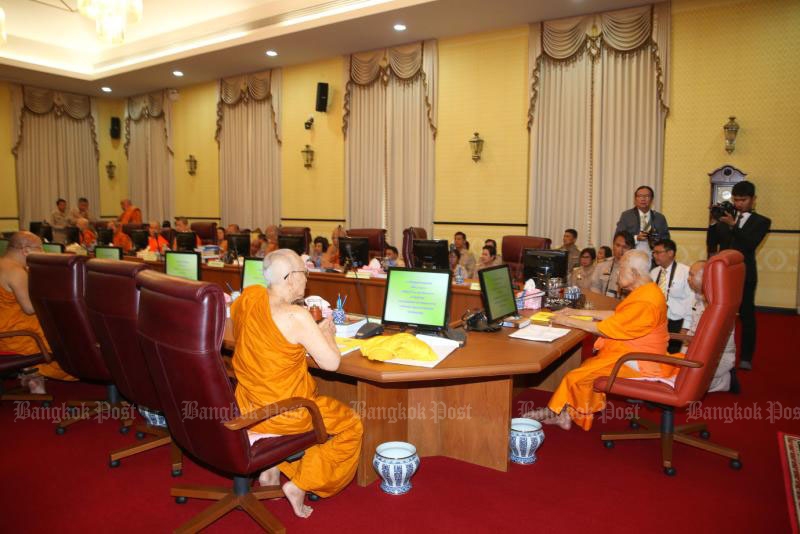
The article was originally published on Jan 7, 2017.
His Majesty the King has endorsed the amendment to the Sangha Act empowering the king to appoint the Supreme Patriarch and preventing the Sangha Supreme Council (SSC) from having a say in the nomination.
The National Legislative Assembly (NLA) passed the bill on Dec 29 last year. It was published in the Royal Gazette late on Friday and took effect immediately, replacing the 1992 amendment.
The key change to the 2017 amendment was Section 7, which now stipulates His Majesty the King shall appoint the Supreme Patriarch while the prime minister countersigns the appointment. The reason of the change was to make the law "in line with a long tradition".
Previously, the section said the King appoints a successor to the Supreme Patriarch after his predecessor has left office or is unable to perform his duties. The prime minister, with the SSC's consent, shall nominate the most senior monk by Buddhist rank to be royally appointed as the new Supreme Patriarch. If the nominee cannot perform his duty, the Cabinet shall nominate the monk next in rank for the royal appointment.
The new law, which restores an old tradition in which the King names the Supreme Patriarch, means that any monk, regardless of his Buddhist rank, can now be appointed to lead if the king sees fit.
On Dec 29, the NLA spent 58 minutes passing the amendment in three straight readings. The passage lifts conditions positioning Somdet Phra Maha Ratchamangalacharn, widely known as Somdet Chuang, as the sole candidate to become the new supreme patriarch.
The quick passage of the bill came as a shock to supporters of Somdet Chuang, the abbot of Wat Paknam Phasi Charoen who was in January last year nominated by the SSC to be the new supreme patriarch. He is the most senior monk in the country.
Prime Minister Prayut Chan-o-cha has frozen the process to appoint him because Somdet Chuang is facing criminal charges in connection with car tax evasion.
NLA member Somchai Sawangkarn earlier said the Dec 29 amendment was nothing new since it simply reverted Section 7 of the law back to the original 1962 version. The section was rewritten in the 1992 amendment to add that the nominee must be "the most senior monk by rank". However, no Supreme Patriarch has been appointed by that criteria because the late Supreme Patriarch took the position in 1989 and died in 2013 and the process to appoint his successor has since been delayed.
